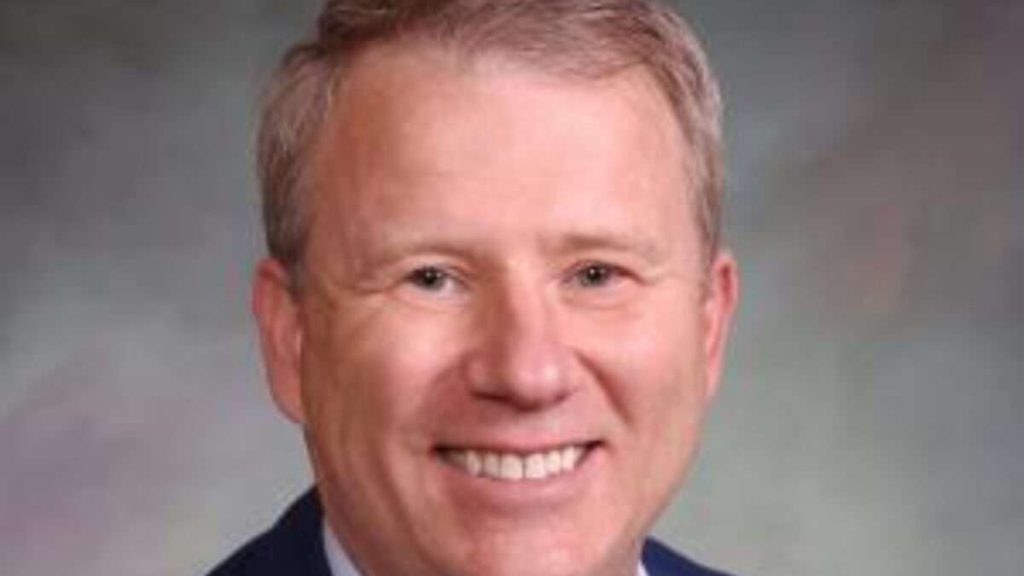In the face of scathing, bipartisan criticism, the Colorado legislators who wanted to ban guns from a long list of “sensitive places” have reconsidered that constitutionally dubious plan. The original version of Senate Bill 24-131, introduced on February 7, would have made it a misdemeanor to carry firearms in more than two dozen types of public places, including parks, playgrounds, recreation facilities, zoos, museums, libraries, “public gathering[s],” medical facilities, banks, stadiums, amusement parks, bars, pot shops, college campuses, and houses of worship. The new version, unveiled this week, applies only to schools, polling places, and certain government buildings.
The amended bill also narrows the scope of the firearm restrictions by allowing carry permit holders to possess handguns in “parking areas” adjacent to “sensitive places.” Under the previous version, guns would have been allowed in those parking lots only if they were “stored in locked containers in vehicles.” That requirement would have had a far-reaching effect, banning guns from the parking areas of any mall or shopping center that happened to include a “sensitive place” such as a bar or a bank branch.
What happened? “The changes were made by the Senate Judiciary Committee, largely in response to concerns from Sen. Dylan Roberts, a Democrat,” Colorado Public Radio (CPR) reports. “He said the new version of the bill would have stronger legal standing, even after the U.S. Supreme Court undermined the basis of many gun laws in its 2022 Bruen decision.”
In New York State Rifle & Pistol Association v. Bruen, the Court held that states may not require residents to demonstrate a “special need” before allowing them to carry guns in public for self-defense. The decision also established a test for determining whether a gun control law is constitutional: It must be “consistent with this Nation’s historical tradition of firearm regulation.”
Roberts’ concern that the restrictions imposed by S.B. 24-131 would not meet that test was well-grounded. After Bruen, legislators in states that had to modify their requirements for carry permits were alarmed by the idea that residents would start exercising the right to bear arms. So they made carry permits easier to obtain but much harder to use, creating long lists of places where guns were not allowed. Federal judges in California, Hawaii, Maryland, New Jersey, and New York have deemed at least some of those restrictions unconstitutional under Bruen.
Even the U.S. Court of Appeals for the 2nd Circuit, which in December upheld several of New York’s “sensitive location” restrictions, rejected the state’s default rule against guns in all businesses open to the public unless the owner posts “clear and conspicuous signage” allowing them or “has otherwise given express consent.” And California’s similar law is on hold while the U.S. Court of Appeals for the 9th Circuit reviews the preliminary injunction that U.S. District Judge Cormac Carney issued in December. Oral arguments in that case, Carralero v. Bonta, are scheduled for April 11.
Despite all these warning signs, state Sen. Sonya Jaquez Lewis (D–Longmont), who introduced the bill in her chamber along with Sen. Chris Kolker (D–Centennial), insisted that Colorado could not wait to see the ultimate results of the litigation. Carralero “could take another one or two years” to resolve, she said, and “we didn’t want to wait two years, because we know how many incidents of gun violence occur in Colorado in one year—way too many.”
That argument was puzzling for two reasons. First, Jaquez Lewis knew her bill was sure to provoke constitutional challenges, meaning it probably would not take effect anytime soon, if ever. Second, her claim that S.B. 24-131 would reduce “incidents of gun violence” was wildly implausible, given that neither mass murderers nor other violent criminals are known for their punctiliousness in following the law. The bill’s impact would have been limited to law-abiding gun owners, the sort who bother to jump through the hoops necessary to obtain a carry permit. As David Kopel, a gun policy expert at Colorado’s Independence Institute, noted in written testimony against S.B. 24-131, carry permit holders “are far more law-abiding than the general population.”
The amended bill, which Roberts calls “very limited” and “very tailored,” defines “sensitive places” in a way that is designed to jibe with what the Supreme Court has said on the subject. In the landmark 2008 case District of Columbia v. Heller, the Court suggested that laws “forbidding the carrying of firearms in sensitive places such as schools and government buildings” are presumptively constitutional. The Court reiterated that point two years later in McDonald v. Chicago. In Bruen, it noted that “the historical record yields relatively few 18th- and 19th-century ‘sensitive places’ where weapons were altogether prohibited,” mentioning “legislative assemblies, polling places, and courthouses” as examples. It saw no historical evidence of “disputes regarding the lawfulness of such prohibitions.”
Given those references to “sensitive places,” the narrower version of S.B. 24-131 is more likely to pass muster with the courts. But it does not seem to accomplish much.
The biggest change is the provision dealing with schools. As it stands in Colorado, concealed carry is often restricted in K–12 schools and permitted with certain exceptions on state university campuses. The bill would replace those policies with a uniform ban that applies to colleges as well as K–12 schools, whether public or private. By banning armed self-defense on college campuses, Kopel worries, that provision will make them “safe spaces for rapists and other violent criminals.”
Concealed carry is already prohibited “inside the Capitol” under a law that applies to buildings with security screening. S.B. 24-131 makes that ban more specific. It covers “the chambers, galleries, or offices of the General Assembly”; the sites of legislative hearings or meetings; and the offices of any General Assembly “member, officer, or employee.”
Courthouses also already prohibit guns. The bill would replace those judicial district rules with a statutory ban.
Guns likewise are often prohibited in local government buildings. The bill would establish a default rule that guns are not allowed in those buildings “unless permitted by a local government” under “an ordinance, regulation, or other law.”
What about polling places? “Existing law prohibits openly carrying a firearm within any polling location or central count facility, or within 100 feet of a ballot drop box or any building in which a polling location or central count facility is located, while an election or any related ongoing election administration activity is in progress,” the bill summary notes. “The bill prohibits carrying a firearm in any manner at those locations.”
Despite the bill’s limited reach, its sponsors are still promising that it will improve public safety. “The presence of firearms, often escalating minor disputes into deadly encounters, has left an indelible mark in our communities,” Kolker said at a committee hearing. “This risk magnifies when firearms are introduced into environments where our children learn and play, leading to the possibility of misfire or an accidental discharge.”
How often are children killed by guns that permit holders carried onto school grounds? Maybe never, since Kolker did not cite any examples to support his fear. But from 2016 through 2021, the Colorado Department of Public Health & Environment reports, 43 people of all ages died from unintentional firearm injuries in all settings across the state. Five of those accidental deaths (one per year) involved “children under the age of 9.” Such accidents typically happen at home.
How often do carry permit holders get into “minor disputes” that escalate into gunfire? Not very, judging from data on permit revocations. “According to the Denver Police Department, there are about 10,792 active concealed-carry permits in Denver,” Westword reported in 2022. “There was one revocation of a Denver permit in 2020, under the category ‘mental illness or addiction.'” Based on statewide data, Kopel calculated that permit holders are “39 times less likely to be arrested than someone without a carry permit.”
That reality was a good reason to doubt that even the broad restrictions contemplated in the original version of S.B. 24-131 would have measurably improved public safety. Now that the bill has been whittled down to a few largely redundant bans, the promises of its supporters seem even more fanciful.
The post Colorado Legislators Ditch Plan To Ban Guns in Dozens of ‘Sensitive Places’ appeared first on Reason.com.







